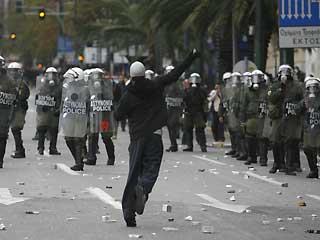The Spanish unions have postponed a general strike; the bloody barricades and the red shirts might have been in Bangkok not Berlin; and, for the moment, the British coalition leaders sit side by side on the front bench like honeymooners canoodling on the porch; but in Europe and America there is a distinct possibility of a long hot summer of social umbrage.
Historians will tell you there is often a time-lag between the onset of economic disaster and the accumulation of social fury. In act one, the shock of a crisis initially triggers fearful disorientation; the rush for political saviours; instinctive responses of self-protection, but not the organised mobilisation of outrage. Whether in 1789 or now, an incoming regime riding the storm gets a fleeting moment to try to contain calamity. If it is seen to be straining every muscle to put things right it can, for a while, generate provisional legitimacy.
Act two is trickier. Objectively, economic conditions might be improving, but perceptions are everything and a breathing space gives room for a dangerously alienated public to take stock of the brutal interruption of their rising expectations. What happened to the march of income, the acquisition of property, the truism that the next generation will live better than the last? The full impact of the overthrow of these assumptions sinks in and engenders a sense of grievance that 'Someone Else' must have engineered the common misfortune.
The stock epithet the French revolution gave to the financiers who were blamed for disaster, was "rich egoists". Our own plutocrats may not be headed for the tumbrils but the fact that financial catastrophe, with its effect on the "real" economy came about through obscure transactions designed to do nothing except produce short-term profit aggravates a sense of social betrayal.
At this point, damage-control means pillorying the perpetrators: bringing them to book and extracting statements of contrition. This is why the psychological impact of financial regulation is almost as critical as its institutional prophylactics. Those who lobby against it risk jeopardising their own long-term interests. Should governments fail to reassert the integrity of public stewardship, suspicions will emerge that, for all the talk of new beginnings, the perps and new regime are cut from common cloth.
Both risk being shredded by popular ire or outbid by more dangerous tribunes of indignation.
This article can be found at:
http://www.ft.com/cms/s/0/45796f88-653a-11df-b648-00144feab49a,_i_email=y.html





 By: N. Peter Kramer
By: N. Peter Kramer
